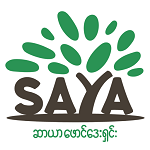Little Mathematicians’ Program
Little Mathematicians’ Program encourages children for logical reasoning, critical thinking, creative thinking, abstract
or spatial thinking, problem-solving ability, and even effective communication skills.
What is Math Concept Books?
Math Concept Books are learning approaches which help learners to build a strong foundation in mathematical thinking, supports them to solve real-life problems through logical reasoning, and encourages them to enjoy numbers with confidence and creativity.
Desired Outcomes for Students
- To understand key math concepts.
- To solve real-world problems.
- To explain ideas clearly.
- To think logically and creatively.
- To enjoy learning math.
Level Description
- Level 1 (Ages 7–8 , Grade 2-3)
- Level 2 (Ages 9–10, Grade 4-5)
- Level 3 (Ages 11–12, Grade 6-7)
Key Concepts
Learners explore mathematics through four main areas—Algebra, Geometry, Statistics, and Consumer Math—across the following topics:
- Number Sense – Understanding how numbers work, their value, and relationships.
- Operations – Mastering the four basic operations: addition, subtraction, multiplication, and division.
- Fractions and Decimals – Learning parts of a whole, comparing, and applying them in calculations.
- Shapes and Space – Recognizing and describing 2D and 3D shapes, angles, symmetry, and spatial reasoning.
- Measurement – Measuring time, length, weight, volume, and temperature, with real-world applications.
- Data Handling – Collecting, organizing, and reading data using graphs, charts, and tables.
- Patterns and Algebra – Discovering patterns, sequences, and engaging in simple algebraic thinking.
- Problem Solving – Applying concepts to solve word problems and logical challenges.
- Real-life Maths – Using math in everyday situations like shopping, time management, and budgeting.
